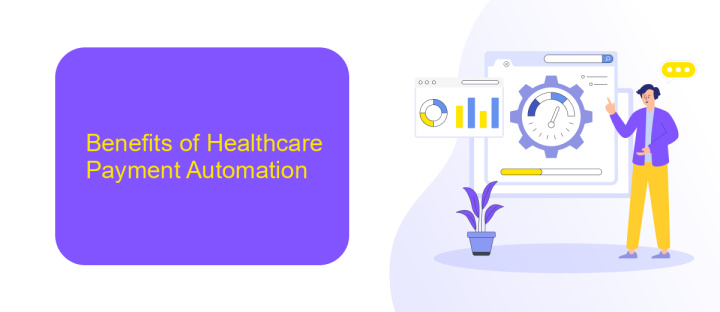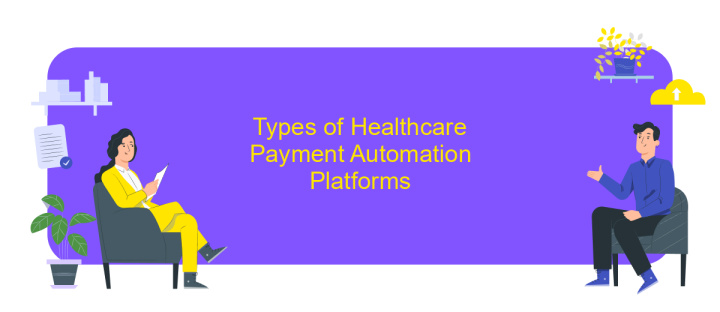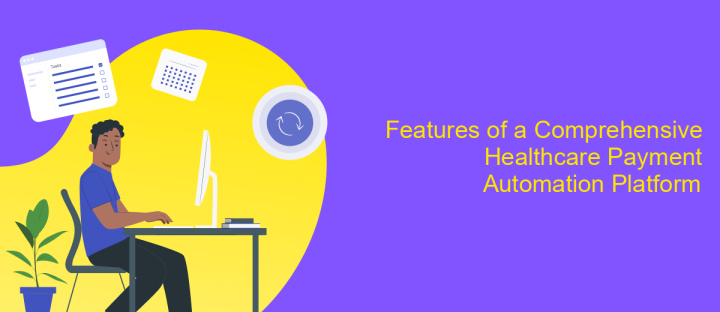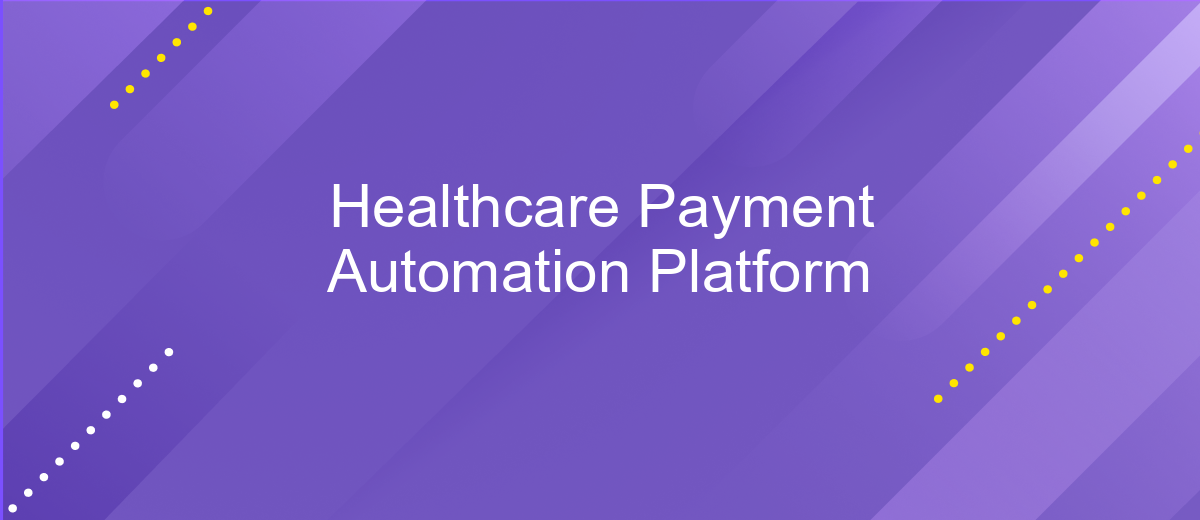Healthcare Payment Automation Platform
In an era where efficiency and accuracy are paramount, healthcare payment automation platforms are revolutionizing the industry. By streamlining billing processes, reducing administrative burdens, and enhancing patient satisfaction, these advanced systems are transforming how healthcare providers manage financial transactions. Discover how automation is paving the way for a more efficient, transparent, and patient-centric healthcare payment experience.
Introduction
The healthcare industry is undergoing a significant transformation, driven by the need for more efficient and transparent financial processes. As medical costs continue to rise, the demand for streamlined payment solutions becomes paramount. Healthcare Payment Automation Platforms are emerging as a vital tool to address these challenges, offering an integrated approach to managing payments, reducing administrative burdens, and enhancing patient satisfaction.
- Automated billing and invoicing
- Real-time transaction tracking
- Enhanced security and compliance
- Streamlined patient payment processes
- Reduction in administrative costs
By leveraging advanced technologies such as artificial intelligence and machine learning, these platforms can predict payment behaviors, detect fraud, and optimize revenue cycles. They not only simplify the payment process for patients but also provide healthcare providers with valuable insights into their financial operations. As a result, Healthcare Payment Automation Platforms are becoming indispensable in modern healthcare settings, driving both operational efficiency and financial health.
Benefits of Healthcare Payment Automation

Healthcare payment automation brings numerous benefits to the industry, starting with improved efficiency and reduced administrative burden. By automating repetitive tasks such as claims processing, billing, and payment collections, healthcare providers can focus more on patient care and less on paperwork. This not only speeds up the payment cycle but also minimizes human errors, ensuring more accurate financial transactions. Additionally, automation helps in maintaining compliance with regulatory standards, reducing the risk of costly penalties.
Another significant advantage is the enhanced patient experience. Automated payment systems provide patients with convenient options for settling their bills, such as online payments and automated reminders. This flexibility leads to faster payments and improved patient satisfaction. Furthermore, integrating these systems with existing healthcare software can be seamless with tools like ApiX-Drive, which facilitates easy and efficient integration of various applications. This ensures a smooth workflow and real-time data synchronization, making the entire payment process more transparent and efficient for both providers and patients.
Types of Healthcare Payment Automation Platforms

Healthcare payment automation platforms are revolutionizing the way transactions are processed in the medical field. These platforms streamline billing, payments, and reconciliation processes, reducing errors and administrative burdens. Different types of healthcare payment automation platforms cater to various needs within the industry, each offering unique features and benefits.
- Claims Management Platforms: These platforms automate the submission, tracking, and adjudication of insurance claims, ensuring faster and more accurate reimbursements.
- Patient Payment Portals: These portals provide patients with an easy and secure way to pay their medical bills online, offering multiple payment options and transparent billing information.
- Revenue Cycle Management Systems: Comprehensive systems that manage the entire financial process, from patient registration to final payment, optimizing revenue and reducing administrative costs.
- Automated Clearing House (ACH) Systems: These systems facilitate electronic funds transfers between banks, streamlining payments and reducing processing times.
By leveraging these healthcare payment automation platforms, medical providers can enhance their financial operations, improve patient satisfaction, and ensure compliance with regulatory standards. Each type of platform plays a crucial role in modernizing the healthcare payment landscape, offering tailored solutions to meet the diverse needs of the industry.
Features of a Comprehensive Healthcare Payment Automation Platform

A comprehensive healthcare payment automation platform is designed to streamline the complex processes involved in medical billing and payments. These platforms offer a multitude of features that enhance efficiency, reduce errors, and improve overall patient satisfaction. By automating various aspects of the payment cycle, healthcare providers can focus more on patient care rather than administrative tasks.
One of the key features of such platforms is their ability to integrate seamlessly with existing healthcare management systems. This ensures that all patient data is accurately captured and utilized for billing purposes. Additionally, these platforms often come equipped with advanced analytics tools that provide valuable insights into financial performance.
- Automated claims processing
- Real-time eligibility verification
- Secure payment gateways
- Customizable reporting tools
- Patient payment portals
These features collectively contribute to a more efficient and transparent payment process. By leveraging automation, healthcare providers can significantly reduce administrative burdens, minimize errors, and enhance the overall patient experience. As a result, both providers and patients benefit from a more streamlined and effective payment system.


Conclusion
In conclusion, the implementation of a Healthcare Payment Automation Platform can significantly streamline financial processes, reduce administrative burdens, and enhance overall efficiency within healthcare organizations. By automating payment workflows, healthcare providers can focus more on patient care and less on the complexities of financial management, leading to improved patient satisfaction and operational effectiveness.
Furthermore, integrating services like ApiX-Drive can facilitate seamless connections between various systems and applications, ensuring that data flows smoothly and accurately across platforms. This not only minimizes the risk of errors but also optimizes the entire payment process. As the healthcare industry continues to evolve, embracing automation and advanced integration tools will be crucial for staying competitive and delivering high-quality care. Investing in a robust payment automation solution is a strategic move towards a more efficient and patient-centric healthcare system.
FAQ
What is a Healthcare Payment Automation Platform?
How does a Healthcare Payment Automation Platform improve efficiency?
Can a Healthcare Payment Automation Platform integrate with existing systems?
What are the security measures in place for a Healthcare Payment Automation Platform?
How can I set up and configure a Healthcare Payment Automation Platform?
Time is the most valuable resource for business today. Almost half of it is wasted on routine tasks. Your employees are constantly forced to perform monotonous tasks that are difficult to classify as important and specialized. You can leave everything as it is by hiring additional employees, or you can automate most of the business processes using the ApiX-Drive online connector to get rid of unnecessary time and money expenses once and for all. The choice is yours!

